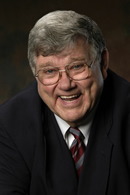At-Risk Students by Bill Page
Dramatic, compelling, sobering accounts of the frustration,discomfiture, and defensive ploys of students at risk, through the eyes and from the heart of a teacher who views failure from the students' perspective. Their notorious misbehavior, ranging from incompetence and disrespect to clowning, apathy, and defiance is a cover up for embarrassment and failure. Through vignettes and essays, the author places the reader firmly in the stuedents' moccasins and presents a reality check for teachers coping with disruptive, disobedient kids. |
Ch. 5
"We Get What We Get": The Bottom Line in Parent Accountability
A blunt, undesirable, but definitive answer to the dilemma of
teachers' expectation of parental cooperation in their child's
schooling, plus the problem of parents who refuse to take
responsibility for assignments, homework, and participation
in their child's learning. The bottom line. Teachers must teach
unconditionally—no excuses, no exceptions.
Following is a somewhat blunt, but quite definitive answer to the questions so often asked by frustrated teachers:
• "What is the parent's accountability in their children's education?"
• "What do teachers have the right to require and/or expect from parents in the way of participation in their child's learning?"
• "If the parents won't see that their child gets his assignments done and won't come to conferences, what can the teacher do?"
"The" Answer
Whether students have four, two, one or no parents;
Whether they are reared by grandparents, relatives, or by others;
Whether they have sixteen brothers, plus halves and live-in cousins;
Whether they live in a house, apartment, project, or mini-van;
Whether they have clean clothes, good hygiene, and good manners;
Whether they speak English, sign language, or a foreign language;
Whether they are challenged physically, socially, or mentally;
Whether they have good interpersonal skills or study skills;
Whether they are underachievers, over-achievers or non-achievers;
Whether their personality, character, and religion are to our liking;
Whether their parents are literate, retarded or English-speaking;
It makes no difference to educators.
Given laws of the universe (over which we have no control);
Given students' inalienable rights (after all, you can't shoot them);
Given a hierarchy of government — from federal to local;
Given the laws and bureaucracies governing education;
Given rules, policies, procedures, traditions, history, etc;
It can all be summed up in five words:
The way it is, is the way it is.
Everyone involved works within the parameters of the laws, rules, and responsibilities; and even within what happens outside of those perameters:
Indeed, "We do get what we get."
We accept our kids. We accept the responsibility.
We take them as we find them and develop their potential. We teach them what they need,
What we want them to have and to know.
We use whatever resources we have or can find.
We develop or create what we need.
If the parents are good resources, we use them.
If they are not, we do it without them.
Within the politics, mandates, mission, goals, strategic planning, curriculum, and educational policies,
We take kids where they are
And we teach them.
We teach them whatever is required by those rules and within that structure.
We teach unconditionally—no excuses, no exceptions!
If they lack manners, we teach them manners.
If they lack study skills and prerequisite knowledge, or
interpersonal skills, we teach them what they lack.
If they lack home resources, materials or breakfast, we provide it. If they lack adequate visual and auditory or physical capability, we compensate.
If they don't fit our structure, we change to accommodate them. We offer alternative methods and procedures.
Our job is to teach the kids we have!
Our job is to teach the kids we have.
Not the kids we used to have.
Not the kids we would like to have.
Not the kids we dream about.
Not the kids who were like us when we were students.
Not the kids who wear clean clothes.
Not the kids who are respectful.
Not the kids who speak English.
Our job is to teach the kids we have—each and every one.
Not just the kids who have responsible parents!
Printed with permission from Educational Dynamics Publishing Company.
At-Risk Students Feeling Their Pain, Understanding Their Defensive Ploys by Bill Page
 Bill Page, a farm boy who graduated from a one-room school, attended a rural high school, flunked out of college, and was drafted into the Korean War. Later, with maturity, military experience and the G.I. Bill, he received his teaching credentials. He became a specialist, teaching middle-school "troublemakers." Bill went on to originate and direct a successful USOE research program for six years. Then for 26 years he taught teachers across the nation to teach the lowest achieving students with his proven premise, "Failure is the choice and fault of schools--not students. Bill Page, a farm boy who graduated from a one-room school, attended a rural high school, flunked out of college, and was drafted into the Korean War. Later, with maturity, military experience and the G.I. Bill, he received his teaching credentials. He became a specialist, teaching middle-school "troublemakers." Bill went on to originate and direct a successful USOE research program for six years. Then for 26 years he taught teachers across the nation to teach the lowest achieving students with his proven premise, "Failure is the choice and fault of schools--not students. |
|